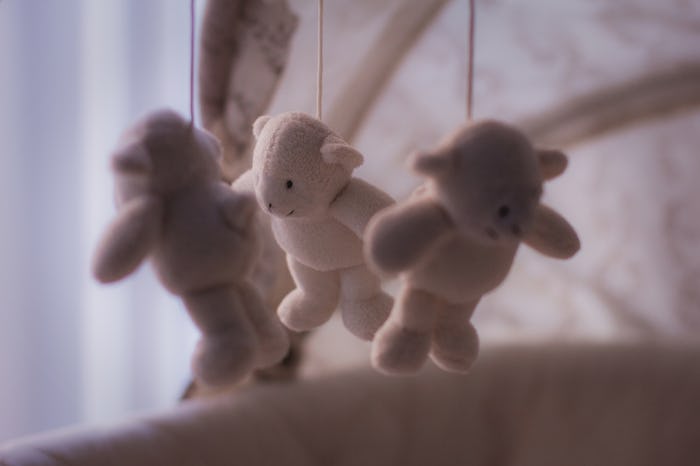Life

Can You Actually Hurt Your Baby Co-Sleeping?
Helping your little one sleep soundly can be one of the most rewarding, and sometimes challenging, aspects of parenthood. As with almost every other parenting decision, there are about a thousand different ways of approaching the sleep question. For many parents, co-sleeping seems like a good solution, but you may have some hesitations about the technique. For instance, can you actually hurt your baby co-sleeping, and is this the right sleep technique for your family?
Before diving in, it helps to understand that there are different methods of co-sleeping, and each may have its own particular risk factors. First, there is the family bed method, in which your baby sleeps beside you in an adult bed, as explained in Baby Center. Next, there is the side-car crib, which allows your baby to sleep within arm's reach, but still in his own space, according to SIDS and Kids. Lastly, you may place your baby in his own separate bed some place in your room, which is also known as room-sharing, as explained by Baby Sleep Site. Each of these methods has its own set of benefits and potential dangers.
Bed-sharing has its fans, but there is also a potential risk with this method. According to a 2014 statement by the American Academy of Pediatrics (AAP), bed sharing is the biggest risk factor for infant sleep deaths such as SIDS. As further explained by an article in Pediatrics, the risks may vary based on different age groups, but bed-sharing remained the predominant risk factor for infants aged three months and younger. And as further noted by Medical News Today, the risks associated with bed sharing include overheating and airway obstruction. So, at least for the younger set, bed sharing may not be the safest option.
Next, it helps to understand the safety concerns presented by side-car cribs or separate cribs in the parental bedroom. According to Baby Center, these bedside sleepers or separate cribs may actually work to reduce the risk of SIDS or sleep problems. These permit you to check on your baby without keeping him in an adult bed, which means these methods are unlikely to harm your baby, assuming you the crib is an otherwise safe sleep environment.
So what is a concerned parent to do? With all of the choices available, it's important to note that the best sleeping arrangement for your baby is the one that works for your family, as explained in Parenting. For some families the shared bed is the best bet, while others may prefer a separate crib. There is not a one-size-fits-all answer to the sleep question, even though some methods may statistically be safer than others.